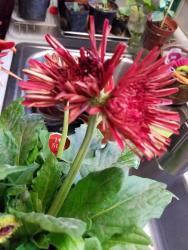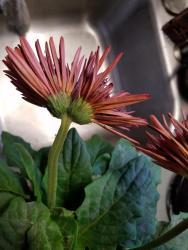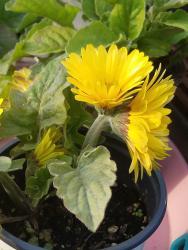@sooby and
@sallysmom:

After a long and bug-filled summer I was doing some fall cleanup. I noticed that something strange was going on with my Gerbera daisies. What do you know? I actually have the answer because y'all taught me that this is fasciation. And after reading about it, it seems to be a somewhat rare but naturally occurring phenomenon so it makes me wonder if there is a virus or something floating around in the air here? This is the third plant that has shown this condition. Any thoughts?
I hope everyone had a wonderful summer and I that others will enjoy seeing this strange growth. Thank you again!
Terri.



that's fasciation. It's not confined to hostas but there's an article about it in hostas here:


After a long and bug-filled summer I was doing some fall cleanup....actually have the answer because y'all taught me that this is fasciation. And after reading about it, it seems to be a somewhat rare but naturally occurring phenomenon so it makes me wonder if there is a virus or something floating around in the air here? This is the third plant that has shown this condition. Any thoughts?
I guess whatever caused it just happened to the one meristem. I once saw a rose shoot that was fasciated, it was very wide and smothered in the extra flowers. Didn't have a camera with me at the time, it's not something one sees very often.
